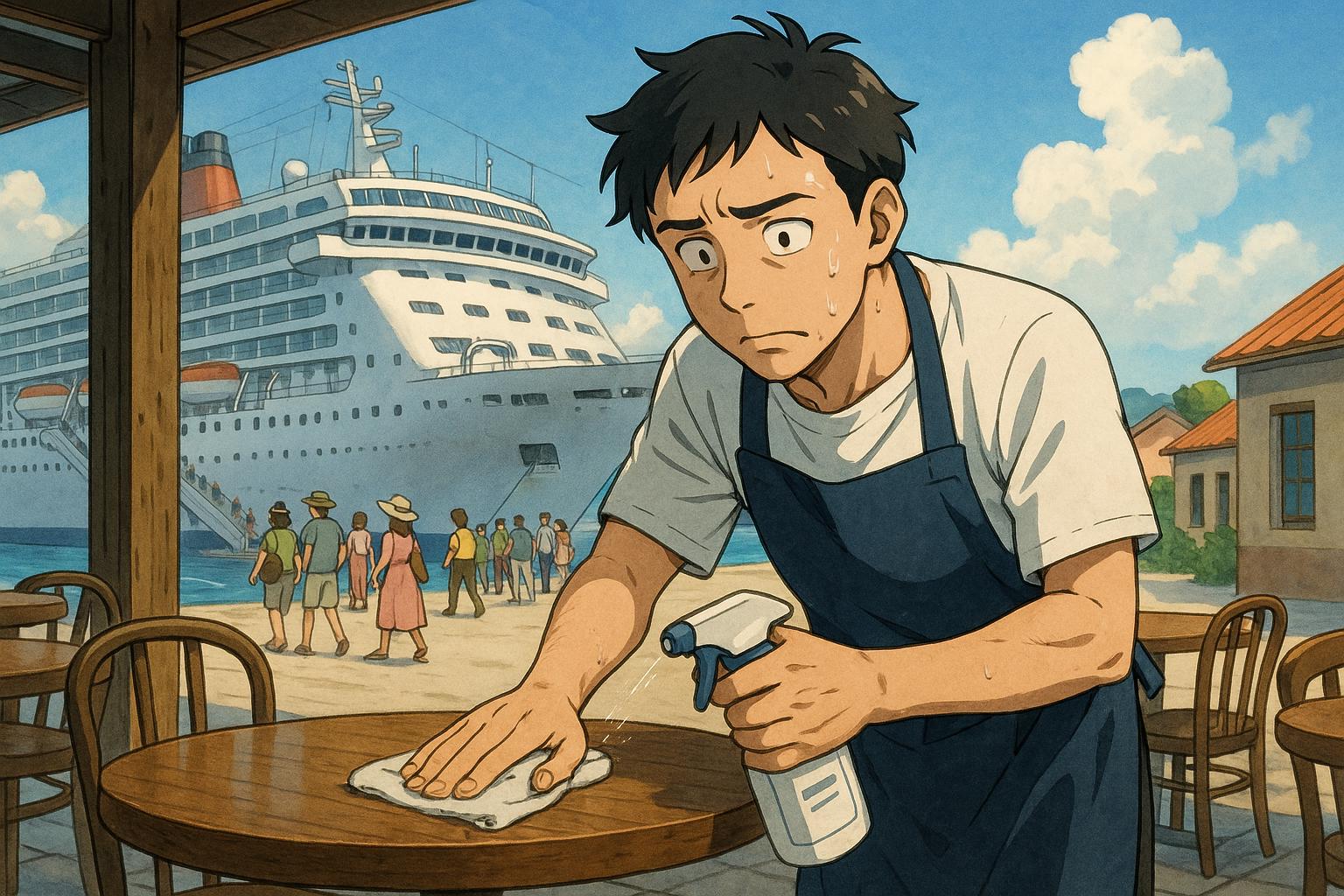Cruise ship passengers in Lerwick were allowed to disembark despite an outbreak of gastroenteritis onboard, sparking anger among local businesses. The Costa Favolosa, a 290-metre vessel capable of carrying nearly 4,000 passengers, docked in the town, exposing the local community to potential health risks. According to reports, tour guides and bus operators were only informed of the situation after tourists had begun to leave the ship, leading to confusion and concern over public safety.
Sonia Robertson, managing director of bus company R. Robertson and Son, expressed her bewilderment at the timing of the notification, noting that it came too late to prevent the exposure. The situation escalated when one passenger became violently ill shortly after boarding one of their buses, prompting Robertson to cancel all tours and take immediate action to disinfect their vehicles. This decision, she stated, could have significant financial consequences for her company and its services, particularly those related to school transport and public bus services.
The café industry in Lerwick echoed these sentiments. Celia Smith, owner of Blyde Welcome café, reported that she only learned of the illness through informal channels and not from official sources. Concerned about the potential spread of the virus, she and her staff began disinfecting surfaces as soon as visitors left. Smith condemned what she described as a "complete disregard for the local community's safety," highlighting the risks posed by allowing nearly 3,000 passengers to roam freely in the town.
Costa Cruises claims that local health authorities had cleared passengers for disembarkation before they arrived. Yet, both NHS Shetland and Lerwick Port Authority later indicated they had no prior knowledge of the illness on the ship, with NHS Shetland saying they were informed “late in the afternoon” on the day of arrival. It appears that miscommunication may have occurred, potentially arising from the cruise operator possibly contacting a health board in another area instead of the local NHS.
The issue of gastroenteritis outbreaks on cruise ships is not new. The Centres for Disease Control and Prevention (CDC) regularly monitors such incidents, emphasising the importance of swift and thorough sanitation measures. Past incidents, such as a 2013 outbreak on the Fred Olsen's Black Watch, saw health authorities successfully manage and contain the situation through intensive cleaning protocols. The CDC's Vessel Sanitation Program underlines the continual necessity for vigilance in preventing illness spread among cruise passengers and crew.
As the Costa Favolosa's passengers enjoyed their day in Lerwick, the incident serves as a stark reminder of the fine line between tourism and public health. Local businesses, already grappling with the impact of the pandemic, find themselves navigating the complexities of another health concern, one that could have far-reaching implications for the community and its economy. The need for clear communication and decisive action cannot be overstated, as local systems of health and safety continue to be tested by the influx of cruise passengers.
Reference Map
- Paragraphs 1-5: Source [1]
- Paragraph 6: Source [2], [3]
- Paragraph 7: Source [4], [5],
- Paragraph 8: Source [6], [7]
Source: Noah Wire Services
